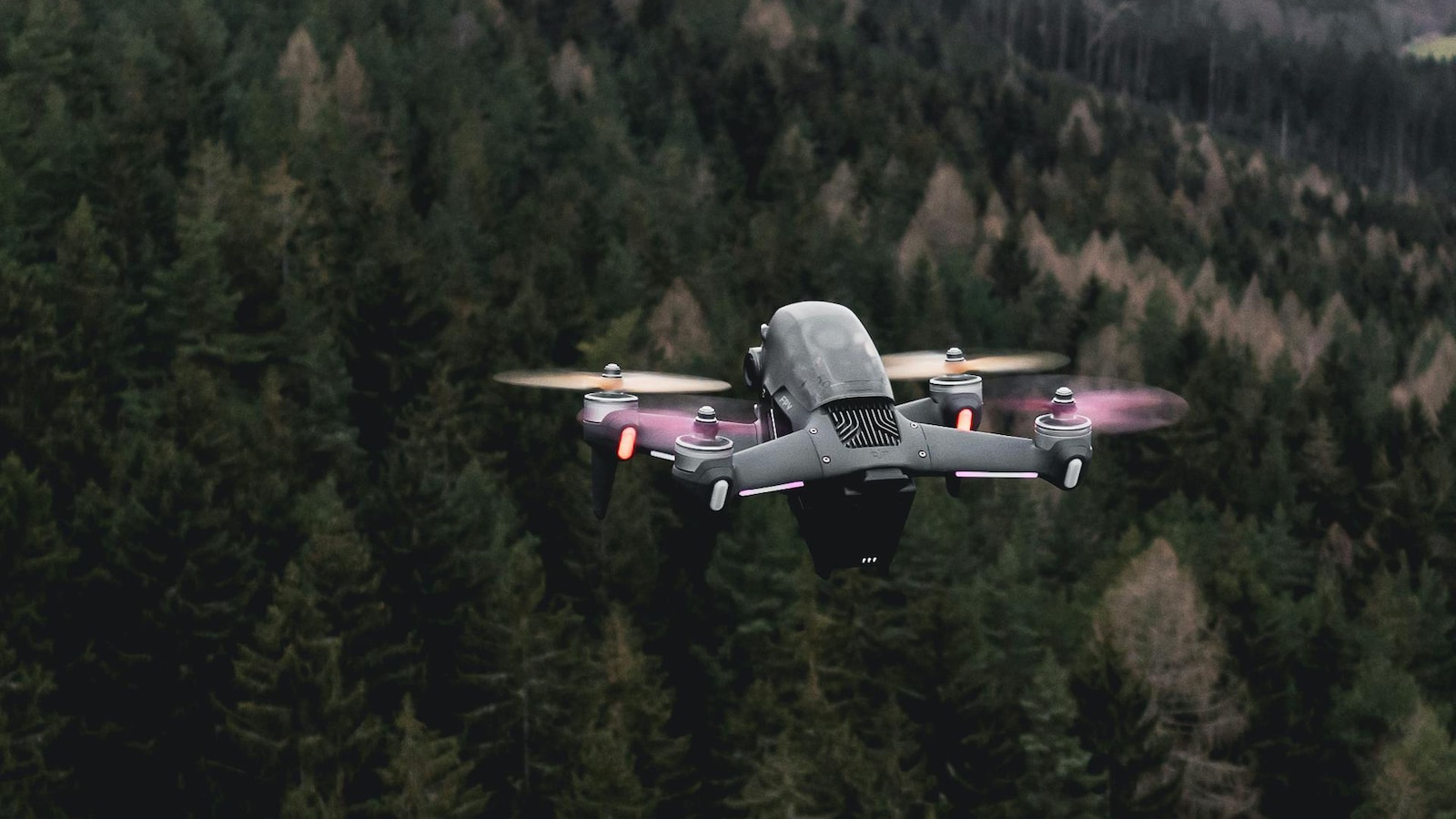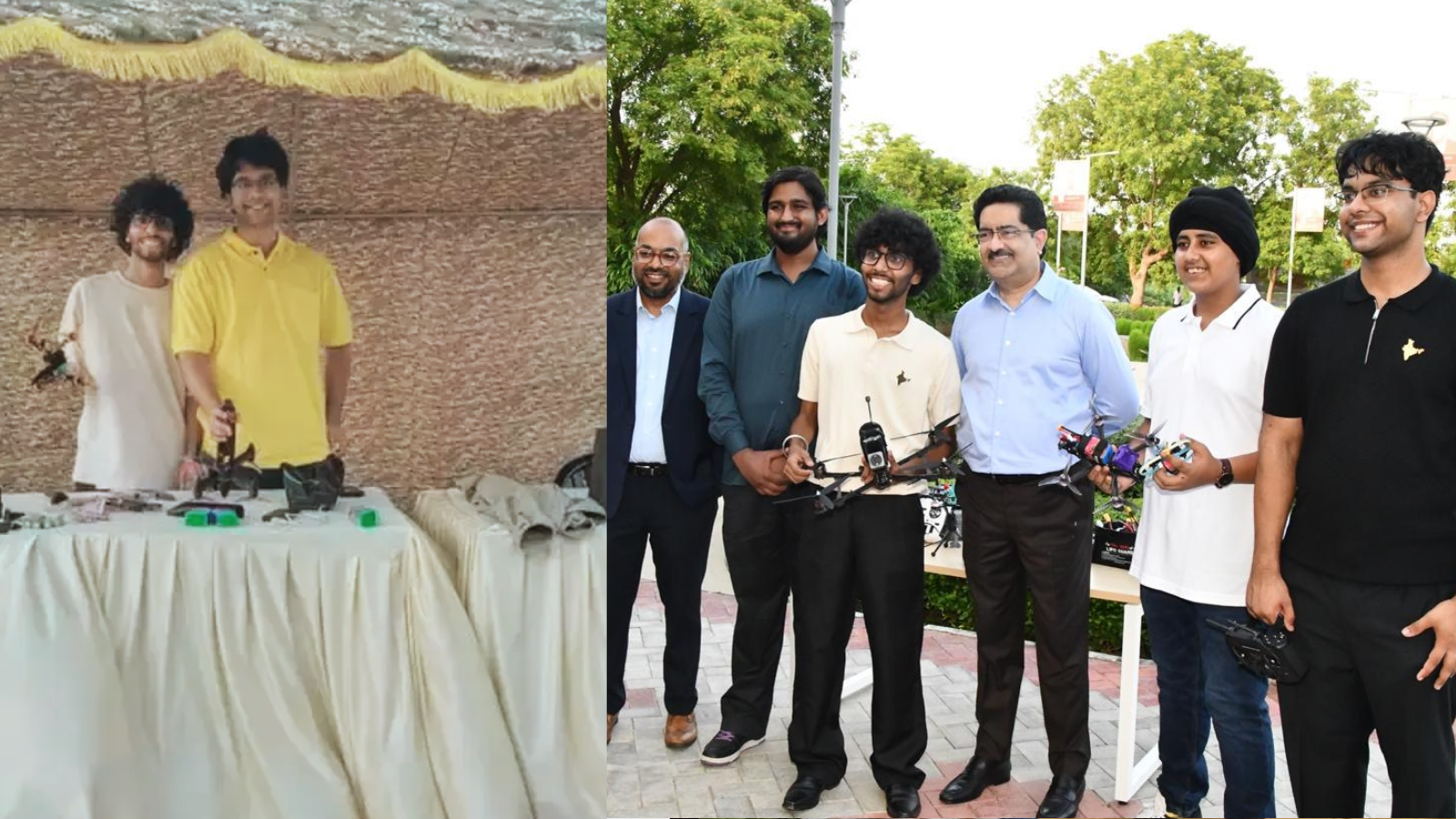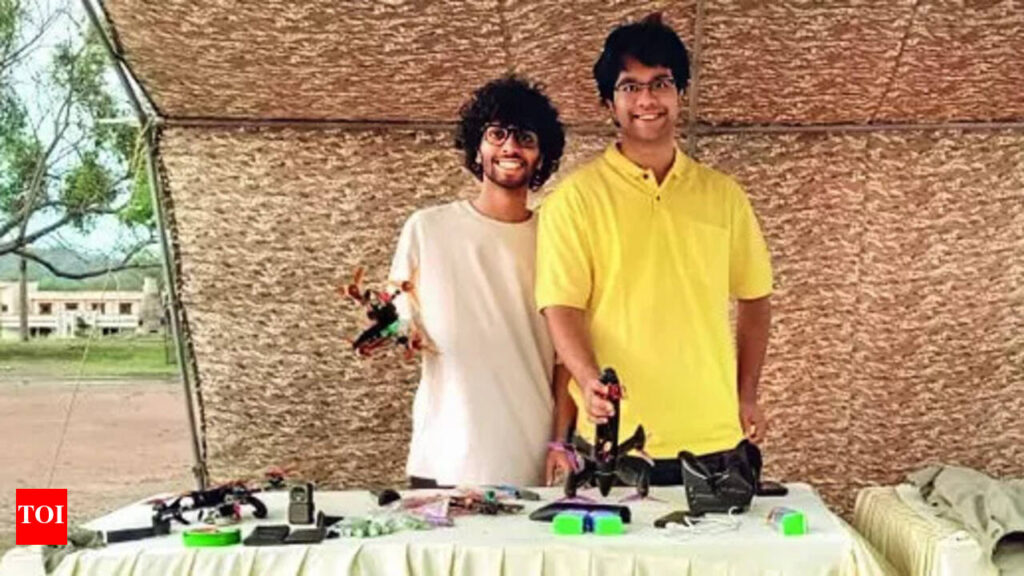In a true tale of grit, innovation, and patriotism, two 20-year-old students from BITS Pilani Hyderabad have shocked India’s defence establishment — not with words, but with action. From the confines of their humble hostel room, mechanical engineering student Jayant Khatri from Ajmer and electrical engineering student Sourya Choudhury from Kolkata have created Apollyon Dynamics, a defence startup now supplying radar-proof, bomb-dropping kamikaze drones to the Indian Army.
These cutting-edge Unmanned Aerial Vehicles (UAVs) boast speeds of over 300 kmph, five times faster than commercial drones, and can deliver payloads with pinpoint precision — all while evading radar detection.

Built in a Hostel. Bought by the Army.
What started as a college robotics club turned into a startup after Khatri took a bold step — sending cold LinkedIn messages to Army officials. One colonel responded. A demo was arranged in Chandigarh. What followed was extraordinary: live tests, growing interest, and confirmed orders from Army units in Jammu, Chandimandir (Haryana), Panagarh (West Bengal), and Arunachal Pradesh — all in just two months.
Mission: Make India Self-Reliant in Defence Tech
“We built our first prototypes using off-the-shelf parts. The goal was clear — reduce India’s dependence on imported drones,” said Khatri.
Their drones are designed, assembled, and tested in-house, with a focus on durability, adaptability, and performance in extreme Indian terrain. “We didn’t just want to build a flying machine. We wanted to build a solution for the Indian Army,” added Choudhury.

From Dreams to Drones
Today, Apollyon Dynamics has expanded to a six-member team, all students, and is working on next-gen VTOL and fixed-wing platforms for versatile combat missions. The startup doesn’t stop at manufacturing — they also train Army personnel, including those with no prior drone experience.
A Real-Life Joy Lobo With a Different Ending
Unlike Joy Lobo from 3 Idiots, whose dream died in silence, these students turned their passion into a weapon for the nation. “It’s heartening to see what they’ve achieved,” said BITS professor Sanket Goel.
In a world dominated by giant defence contractors, two young minds have proven that innovation doesn’t need billion-dollar labs — just a vision, a laptop, and a little bit of madness.


